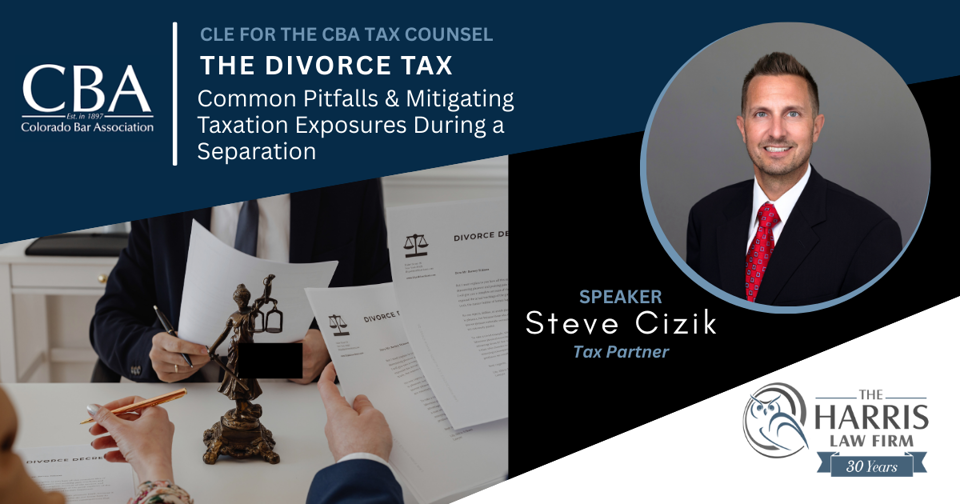Why Every Business Owner Needs a Strategic Tax Plan
For business owners, taxes aren’t just a once-a-year concern—they’re part of every major decision you make. From choosing the right business structure to selling your company or handling an IRS notice, your tax strategy can significantly impact your bottom line. Thoughtful tax planning helps protect profits, reduce risk, and create a clear path toward growth and long-term success.
At The Harris Law Firm, our attorneys partner with business owners to navigate complex tax laws and make smart, informed decisions at every stage of the business lifecycle.
Starting or Structuring a Business: Build on a Strong Foundation
Choosing the right structure—LLC, partnership, corporation, or sole proprietorship—does more than define how your business operates. It determines how your income is taxed and how much personal risk you carry. The right structure can minimize your tax liability, protect personal assets, and set the stage for long-term stability.
Our attorneys help entrepreneurs make confident, tax-smart decisions from day one, ensuring that your business starts on the strongest possible foundation.
Business Sale, Buyout, or Closure: Plan Ahead to Save Big
When it’s time to sell, merge, or close a business, the tax implications can be significant. A poorly structured deal can result in unexpected liabilities and lost profits. Before finalizing a sale or buyout, it’s essential to understand how capital gains, depreciation recapture, and other tax factors will affect your outcome.
We help business owners structure transactions to minimize taxes and protect your financial future—whether you’re passing the business to family, selling to a partner, or preparing for retirement.
Responding to IRS or State Tax Notices
Receiving a letter from the IRS or your state taxing authority can be stressful, but it doesn’t have to derail your business. Our attorneys step in to handle communication directly, ensuring your rights are protected and that you don’t say or do anything that could worsen your situation. We take the burden off your shoulders so you can stay focused on running your business.
When the IRS Comes Calling: Audits and Collections
If your business is under audit or facing collections, having legal representation is crucial. Speaking with IRS agents without an attorney can expose you to unnecessary risk. We know how to negotiate, protect your interests, and pursue resolutions that keep your business moving forward.
Expert Testimony and Tax Litigation Support
Our team also provides expert witness services on tax issues related to contracts, damages, or marital cases. With deep experience in tax law and business operations, we offer trusted, credible insights that can make a difference in complex legal matters.
Common Tax Issues Business Owners Should Understand
What’s the difference between a tax lien and a tax levy?
A tax lien is a claim against your property for unpaid taxes, while a tax levy allows the IRS to actually seize assets to satisfy that debt. Knowing the difference—and responding quickly—can protect your assets and limit the damage.
Can the IRS hold me personally responsible for my business’s tax debts?
In some cases, yes. Certain business tax liabilities, such as unpaid payroll taxes, can be assessed against company officers or owners personally. Proper planning and compliance can help prevent this kind of exposure.
Are tax penalties and interest sinking my business?
Even if your business is facing significant tax debt, there are still options. With the right strategy—whether it’s restructuring, negotiating settlements, or setting up a payment plan—our attorneys can help you find a path toward resolution and stability.
When to Call a Tax Attorney
If your CFO, CPA, or tax preparer says, “you need to contact a tax attorney,” that’s the time to act. Our team represents clients across diverse industries, from startups to established enterprises, helping resolve tax issues efficiently and effectively.
Contact Harris Law at (303) 622-5502 or schedule a confidential consultation and protect your business from unnecessary tax risks.






